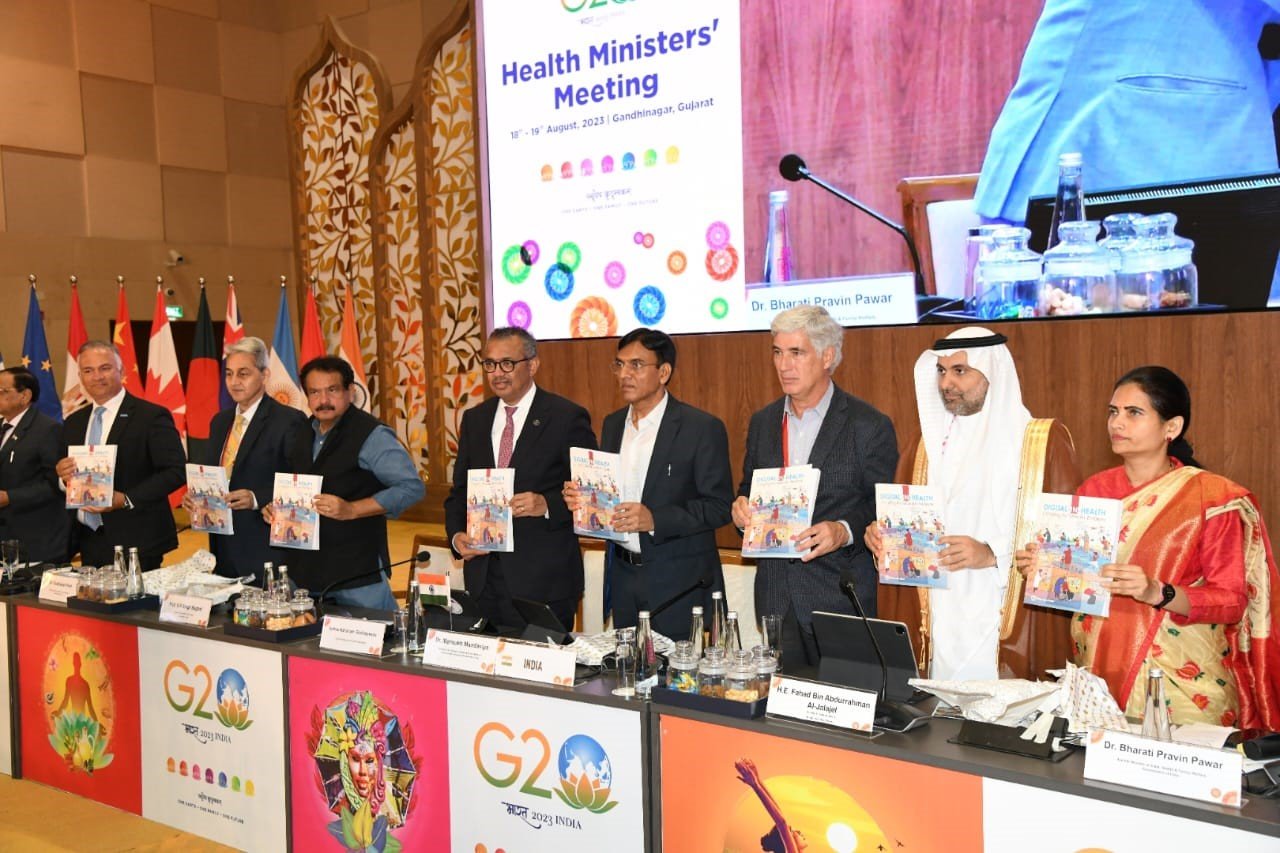Union Minister Mansukh Mandaviya on Saturday launched the ‘Global Initiative on Digital Health – a WHO Managed Network’ at Mahatma Mandir convention centre here on the second and last day of G20 health ministers’ meeting.
It was launched by the Union Minister for Health and Family Welfare in the presence of World Health Organisation Director General Dr Tedros Adhanom Ghebreyesus.
The initiative will consolidate the evidence and amplify recent and past gains in global digital health for health systems while strengthening mutual accountability to enhance the impact of future investments, a PIB release said.
According to Mandaviya, fragmented digital solutions being used currently were resulting in significant workload on health workers, inefficiencies due to duplication and lack of interoperability.
“India’s G20 presidency has leveraged its experience on developing a national digital health architecture through the convergence of digital health interventions aimed at health systems strengthening through interoperability by design,” the PIB release said quoting the minister.
On the occasion, Mandaviya thanked G20 and invited countries, international organisations and other stakeholders for collectively recognizing the need for a common framework and creating a comprehensive digital health ecosystem through the ‘Global Initiative on Digital Health a WHO Managed Network’.
The Union minister also reminded the dignitaries that India led the Digital Health resolution at the 71st World Health Assembly in 2018 in Geneva, which spurred global action on this vital agenda.
Speaking at the event, Ghebreyesus said the GIDH is an integrative step that fosters equity in healthcare by converging efforts and best practices.
“It will amplify our efforts with the incorporation of tools, such as AI while giving due importance to ethics, policy, and governance. GIDH will ensure that no one is left behind,” the WHO DG said.
He said WHO is committed to use the latest technologies for health, adding that the power of digital health technologies like telemedicine and AI has had a significant impact across the world over the last two decades.
The potential and successful implementation of technology during the times of severe healthcare disruptions was evident during COVID-19 in the form of telemedicine usage, Ghebreyesus said.
The GIDH will be a WHO Managed Network (‘Network of Networks’) that will promote equitable access to digital health by addressing challenges such as duplication of efforts and “products-focused” digital health transformation.
The ultimate goal of GIDH is to align efforts to support the Global Strategy on Digital Health 2020 2025, support quality-assured technical assistance to develop and strengthen standards-based and interoperable systems aligned to global best practices, norms and standards, as well as facilitate the use of digital transformation tools.
The Global Strategy on Digital Health was endorsed by member states in 2020 as a way to align actions and goals, while defining a roadmap towards digital health transformation, the release said.
The GIDH will help address more than 70 per cent of the proposed actions in the Global Strategy, the release added.
During the session, Mandaviya also launched the World Bank’s flagship report on ‘Digital in Health Unlocking Value for Everyone’.
The report is intended to give countries confidence and practical guidance on where to start digital health implementation, regardless of the country’s stage of digital maturity or fiscal challenges.


